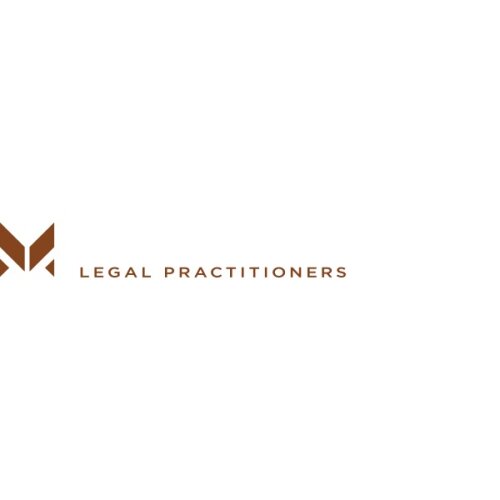Best Antitrust Lawyers in Lusaka
Share your needs with us, get contacted by law firms.
Free. Takes 2 min.
List of the best lawyers in Lusaka, Zambia
About Antitrust Law in Lusaka, Zambia:
Antitrust law in Lusaka, Zambia is designed to promote competition in the marketplace, prevent monopolistic practices, and protect consumers. The Competition and Consumer Protection Commission (CCPC) is the regulatory body responsible for enforcing antitrust laws in Zambia. These laws aim to ensure a level playing field for businesses and safeguard the interests of consumers.
Why You May Need a Lawyer:
You may need a lawyer in Antitrust cases if you are facing allegations of anti-competitive behavior, are involved in a merger/acquisition that may raise antitrust concerns, or if you believe your rights as a consumer have been violated. An experienced antitrust lawyer can help navigate complex legal issues, represent you in investigations or litigation, and ensure compliance with the relevant laws.
Local Laws Overview:
Key aspects of local laws relevant to Antitrust in Lusaka, Zambia include the Competition and Consumer Protection Act, which prohibits anti-competitive practices such as price-fixing, bid-rigging, and abuse of dominant market position. The Act also regulates mergers and acquisitions to prevent transactions that may substantially lessen competition in the market. It is essential to be aware of these laws to avoid legal pitfalls and protect your business interests.
Frequently Asked Questions:
1. What is considered anti-competitive behavior in Zambia?
In Zambia, anti-competitive behavior includes practices that restrict competition, such as price-fixing, market allocation, bid-rigging, and abuse of dominance. These activities are prohibited under the Competition and Consumer Protection Act.
2. How can I file a complaint with the CCPC regarding antitrust violations?
You can file a complaint with the CCPC by contacting their office, submitting a written complaint detailing the alleged antitrust violations, and providing any evidence supporting your claim. The CCPC will investigate the matter and take appropriate action if necessary.
3. What are the penalties for violating antitrust laws in Zambia?
Violations of antitrust laws in Zambia can result in hefty fines, imprisonment, or other enforcement actions by the CCPC. It is important to ensure compliance with these laws to avoid legal consequences.
4. Can I challenge a decision made by the CCPC in an antitrust case?
Yes, you have the right to challenge decisions made by the CCPC in antitrust cases through the Competition and Consumer Protection Tribunal or the Courts. It is advisable to seek legal representation to navigate the appeals process effectively.
5. What factors are considered in evaluating mergers/acquisitions for antitrust concerns?
The CCPC considers factors such as market share, potential impact on competition, barriers to entry, and consumer welfare when evaluating mergers/acquisitions for antitrust concerns. It is crucial to consult with legal experts to assess the antitrust implications of your transaction.
6. How can I ensure compliance with antitrust laws in my business operations?
To ensure compliance with antitrust laws in your business operations, you should establish antitrust compliance programs, provide training to employees on antitrust issues, conduct regular antitrust audits, and seek legal advice when engaging in activities that may raise antitrust concerns.
7. What is the role of the CCPC in promoting competition in the marketplace?
The CCPC plays a crucial role in promoting competition in the marketplace by enforcing antitrust laws, investigating anti-competitive practices, reviewing mergers/acquisitions, raising consumer awareness, and advocating for a competitive business environment in Zambia.
8. Can individuals file private antitrust lawsuits in Zambia?
Yes, individuals can file private antitrust lawsuits in Zambia to seek damages for antitrust violations, including cartels, abuse of dominance, and other anti-competitive practices. Private actions can complement the enforcement efforts of the CCPC in deterring antitrust violations.
9. Are there any exemptions to antitrust laws in Zambia?
There are limited exemptions to antitrust laws in Zambia, such as for agreements that promote economic efficiency, consumer welfare, or public interest. It is advisable to seek legal advice to determine if your activities qualify for any exemptions under the law.
10. How can I stay informed about developments in antitrust law in Lusaka, Zambia?
You can stay informed about developments in antitrust law in Lusaka, Zambia by regularly checking the CCPC's website for updates, attending antitrust seminars or workshops, subscribing to legal publications, and consulting with antitrust experts for insights on emerging trends in the field.
Additional Resources:
For more information on antitrust law in Lusaka, Zambia, you can visit the Competition and Consumer Protection Commission's website at www.ccpz.org. The CCPC's website provides access to relevant laws, guidelines, enforcement actions, and resources to help businesses and individuals understand and comply with antitrust regulations.
Next Steps:
If you require legal assistance in Antitrust matters in Lusaka, Zambia, it is advisable to consult with experienced antitrust lawyers who specialize in this area of law. They can provide guidance on compliance, represent you in investigations or litigation, and protect your interests in antitrust cases. Contacting the CCPC or seeking legal advice promptly can help address any antitrust issues efficiently and effectively.
Lawzana helps you find the best lawyers and law firms in Lusaka through a curated and pre-screened list of qualified legal professionals. Our platform offers rankings and detailed profiles of attorneys and law firms, allowing you to compare based on practice areas, including Antitrust, experience, and client feedback.
Each profile includes a description of the firm's areas of practice, client reviews, team members and partners, year of establishment, spoken languages, office locations, contact information, social media presence, and any published articles or resources. Most firms on our platform speak English and are experienced in both local and international legal matters.
Get a quote from top-rated law firms in Lusaka, Zambia — quickly, securely, and without unnecessary hassle.
Disclaimer:
The information provided on this page is for general informational purposes only and does not constitute legal advice. While we strive to ensure the accuracy and relevance of the content, legal information may change over time, and interpretations of the law can vary. You should always consult with a qualified legal professional for advice specific to your situation.
We disclaim all liability for actions taken or not taken based on the content of this page. If you believe any information is incorrect or outdated, please contact us, and we will review and update it where appropriate.











